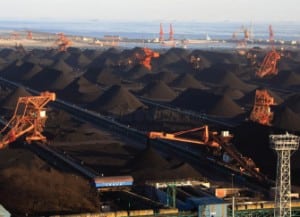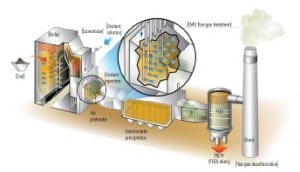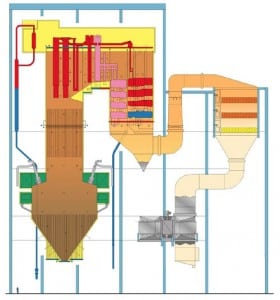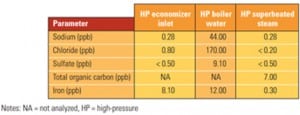Coal
-
Coal
China’s Power Generators Face Many Business Barriers
China’s five largest power generators own half of that country’s power generating assets. Faulty policies and the rapidly changing global economy have made it difficult for these companies to fulfill the high expectations arising from enactment of the Power System Reform Scheme of 2002
-
Coal
EMO Technology Promises Improved Mercury Removal
The latest Environmental Protection Agency mercury control limits in the Mercury and Air Toxics Standards present a significant technical challenge to the power industry. Shaw offers a cost-effective process that promotes mercury oxidation and removal in fossil fuel combustion applications that can potentially achieve consistent mercury oxidation above 95%. Shaw’s E&I Group EMO technology provides the industry with an alternative to halogen salt addition and activated carbon injection that can also be used to augment the performance of existing Hg control applications and strategies
-
O&M
Unit Cycling Makes the Impossible the Ordinary, EUCG Members Say
Low natural gas prices and still-soft electricity demand are forcing low-load and cycling operations at traditionally baseloaded coal units across the country. The resulting challenges were top of mind at the Electric Utility Cost Group’s (EUCG’s) fall meeting in Denver last week. One member of the EUCG’s fossil generation committee from an Ohio Valley utility said that cycling and low-load operations pose challenges for one of his company’s 1,300-MW coal-fired plants that “two years ago we wouldn’t have considered possible.â€
-
Coal
House Passes Legislative “Stop the War on Coal Act” Package, Takes Aim at Carbon, Coal Ash Rules
In its last legislative act before the November election, the U.S. House of Representatives on Friday passed by a vote of 233 to 175 the controversial "Stop the War on Coal Act," a legislative package of measures that seeks to bar the Environmental Protection Agency (EPA) from promulgating carbon emission rules, calls for an analysis of the cumulative economic impacts of certain environmental rules, and would create a state-based program to regulate coal ash.
-
Coal
CO2 Injection Begins at Fully Integrated Coal-Fired CCS Project
Injection of carbon dioxide has begun at one of the world’s first fully integrated coal-fired carbon capture, transportation, and geologic storage projects.
-
Coal
Jinzhushan 3: The World’s First PC-Fired Low Mass Flux Vertical Tube Supercritical Boiler, Part 1
The world’s first supercritical pulverized coal–fired low mass flux vertical tube Benson boiler is Jinzhushan 3, located in the Hunan Province of the People’s Republic of China. The 600-MW Babcock & Wilcox Power Generation Group Inc. once-through boiler burns Chinese anthracite using downshot pulverized coal (PC) technology. Part 1 of this three-part article provides a project summary and overview. The other two parts will look at technology features of the unique boiler design and plant performance test results.
-
O&M
Cycle Chemistry Commissioning Deserves Its Own Strategy
After years of development, design, and construction, your plant is finally nearly ready for startup. But don’t light that cigar yet—at least not until you’ve developed a strategy for commissioning your water cycle chemistry. Root causes of corrosion can be predicted and avoided. The best way to avoid corrosion is to develop and implement plant-specific cycle chemistry commissioning guidelines.
-
O&M
Give Your Plant a Dust Control Tune-Up
Because Powder River Basin (PRB) coal is smaller, more friable, and contains more fine particulates than bituminous coal, controlling the fugitive dust generated as PRB coal moves from bunker to burner tip is problematic. The challenge for material-handling systems at power plants that have switched coals is to minimize this dust and capture it cost-effectively and without compromising safety.
-
Coal
Reactions to Federal Court Striking Down CSAPR
In a landmark ruling that has been seen as a major victory for thermal generators, the U.S. Court of Appeals for the District of Columbia Circuit vacated the Environmental Protection Agency’s (EPA’s) Cross-State Air Pollution Rule (CSAPR) in August, finding that it violated federal law. The EPA must now continue implementation of the Clean Air Interstate Rule (CAIR) until it can promulgate a replacement, which likely will not happen until at least 2014.
-
Coal
Coal to Gas Once More for Dominion
Dominion Virginia Power plans to convert its oldest coal-fired power plant, the 227-MW Bremo Power Station near Bremo Bluff, Va., to natural gas, the company announced earlier this month. The two-unit plant would be the ninth in its fleet to be closed or converted to alternative fuels.





